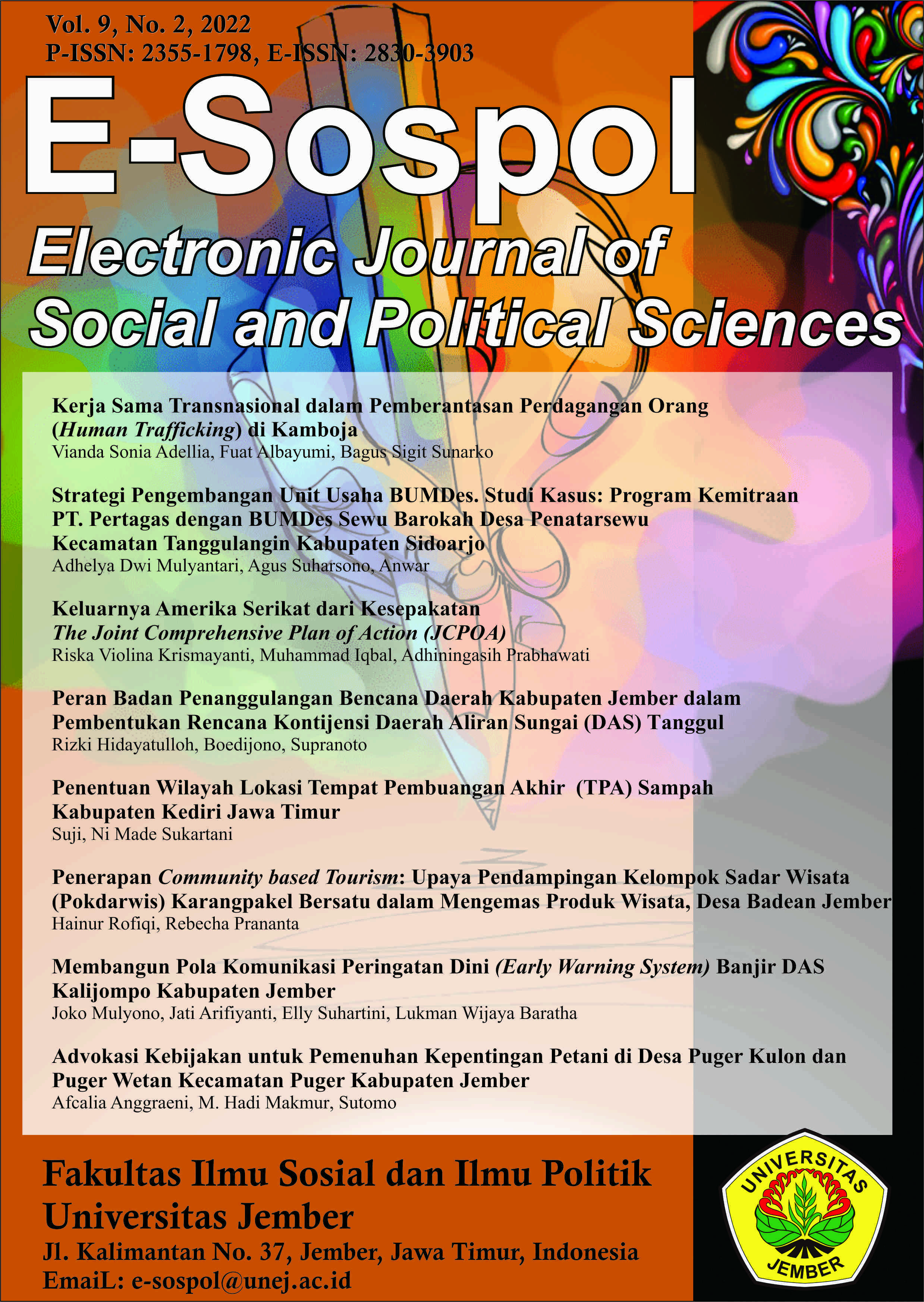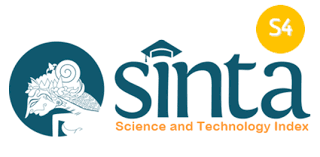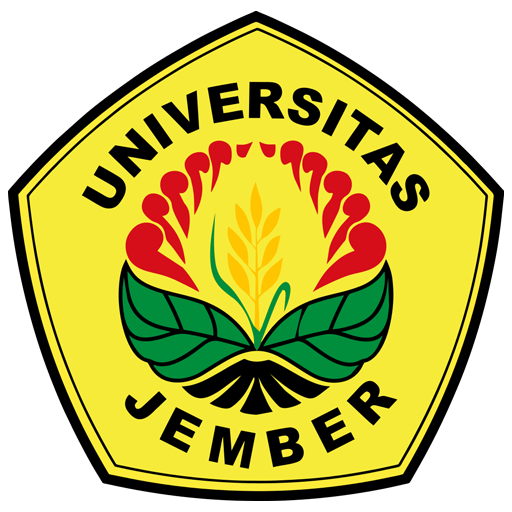Peran Badan Penanggulangan Bencana Daerah Kabupaten Jember dalam Pembentukan Rencana Kontijensi Daerah Aliran Sungai (DAS) Tanggul
DOI:
https://doi.org/10.19184/e-sos.v9i2.32029Abstract
This article is based on the government's disaster management efforts, specifically in Jember Regency, through the Regional Disaster Management Agency in the creation of the Tanggul River Watershed contingency plan document. The goal of this research is to describe the function of the Jember Regency's Regional Disaster Management Agency in the development of the Embankment Watershed Contingency Plan Document (DAS). The theory used in this research is role theory according to Horton which has a behavioral perspective that is expected from a person or institution/organization in a certain status, as well as its duties and functions in supporting the effort to achieve goals. The approach and research method used is qualitative with the type of data consisting of primary data and secondary data obtained through interview, observation, and documentation techniques. The degree of confidence was tested using the data triangulation technique. Analysis of the data using the interactive model of Miles, Huberman, and Saldana. The findings of the study showed the involvement of the Jember Regency Regional Disaster Management Agency in the creation of a contingency plan document that is separated into three roles: coordinator, commander, and executor. The role of the BPBD as coordinator is to: provide stakeholders with an understanding of the contingency plan's objectives and the importance of joint disaster management; become a command, namely in terms of technical implementation, in this case choosing work partners and forming a contingency plan document, which is commanded directly by the BPBD; and be an executor, namely as a disaster management policy holder, is required to carry out what is mandated by the policy.
Downloads
Downloads
Published
Issue
Section
License
Penulis yang mengusulkan naskahnya untuk dapat diproses penerbitannya pada e-SOSPOL dianggap telah menyetujui beberapa hal sebagai berikut:
1. Penulis tidak dapat menarik naskah yang telah usulkan untuk diproses hingga mendapat jawaban dari Ketua Dewan Penyunting atas status naskah artikel ilmiahnya (diterima atau ditolak untuk diterbitkan).
2. Penerbit tidak bertanggung jawab terhadap kasus plagiasi atas artikel yang terbit pada e-SOSPOL
3. Penerbit tidak bertanggung jawab atas data dan isi dari artikel yang diterbitkan pada e-SOSPOL, dan sepenuhnya merupakan tanggung jawab penulis.








